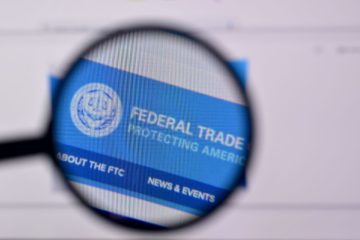As Congress prepares to vote on the Kids Online Safety Act (KOSA), it’s crucial to look beyond its seemingly noble intentions. While the bill purports to protect children from online harms, its provisions pose a significant threat to free speech and digital freedom. Below, Market Institute President Charles Sauer delves into why KOSA’s “duty of care” requirements and expanded powers for the FTC could lead to unintended consequences for internet users and platform operators alike.
He writes:
“Congress may soon vote on the Kids Online Safety Act (KOSA). Like many popular pieces of legislation, this sounds like a bill no one could oppose (what monster would be against children’s safety?) but actually it is a danger to liberty. KOSA imposes a “duty of care” on “covered platforms” (which includes social media, online video games, and streaming services). KOSA applies to companies with actual knowledge that minors are accessing their platforms, and to those with “knowledge fairly implied with objective circumstances.” The duty of care requires that platforms prevent or mitigate a variety of harms, including “bullying, harassment, sexual exploitation, and addiction-like behavior.”
In its original form, the bill gave primary enforcement authority to state attorneys general. However, this was changed after LGBTQ groups expressed concerns that conservative attorneys general could use the new power to target pro-LBGTQ platforms. In response to these concerns, KOSA was revised to make the Federal Trade Commission (FTC) the law’s primary enforcer.
KOSA tasks the FTC with creating “guidelines” companies can use to determine if they have reason to believe that minors are using their platforms. However, as Reason Magazine senior editor Jacob Sullivan points out, KOSA does not require the FTC to use these guidelines when determining whether or not a platform has violated the law.
Given FTC Chair Lina Khan’s track record of disregarding legal precedent in antitrust enforcement, and her attempts to reverse prior FTC decisions, the odds are that companies will have to try to comply with a shifting definition of “knowledge fairly implied under objective circumstances”, as well as what constitutes their “duty of care.”
“Khanservatives” like Senators JD Vance and Josh Hawley may want to think twice before giving Khan new powers over the internet. This is because Khan is not just a proponent of aggressively using antitrust laws to expand government power, but is also willing to use that power to curtail “non-woke” free speech. Last year, Khan responded to the release of the “Twitter files,” which detailed communications between Twitter employees and members of the Biden Administration regarding censorship of certain individuals, by having the FTC request that Twitter supply the “names of all journalists and other members of the media” with whom Twitter communicated following Elon Musk’s purchase of the company. Essentially, she wanted to find out who was responsible for exposing the government’s efforts to censor Americans on Twitter. The request even mentioned specific journalists, including Matt Taibbi, who played a role in making the Twitter Files public.
Khan will no doubt use the powers KOSA grants her to launch new attacks on big tech companies like Meta (parent company of Facebook, WhatsApp, and Instagram), Alphabet (parent company of Google and YouTube) and Amazon. Khan will also likely use these new powers against sites that promote, or even simply allow, posting of “non-woke” views on subjects like gun rights, religious freedom, or a need for limited government.
Sites which promote conservative or libertarian ideas, or which simply support the freedom of speech, could find themselves hauled before a federal court to justify their “failure”. Some supporters of the bill may say that the federal courts—which have lately shown a greater willingness to overturn federal agency actions than they have in years past—will strike down any FTC actions that infringe on the use of social media to express constitutionally-protected opinions. However, even if the FTC’s actions are overturned by the courts, targeted companies will still have to waste time and money defending themselves, and some will decide it is easier to take the path of least resistance and simply give in to Khan’s demands.”


